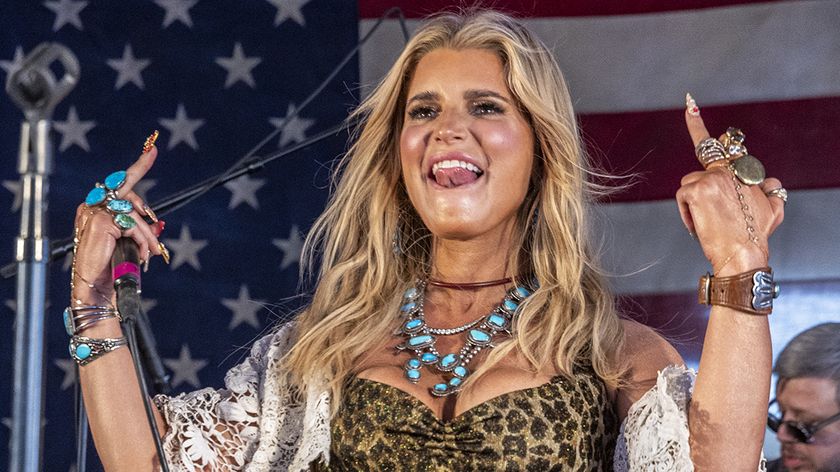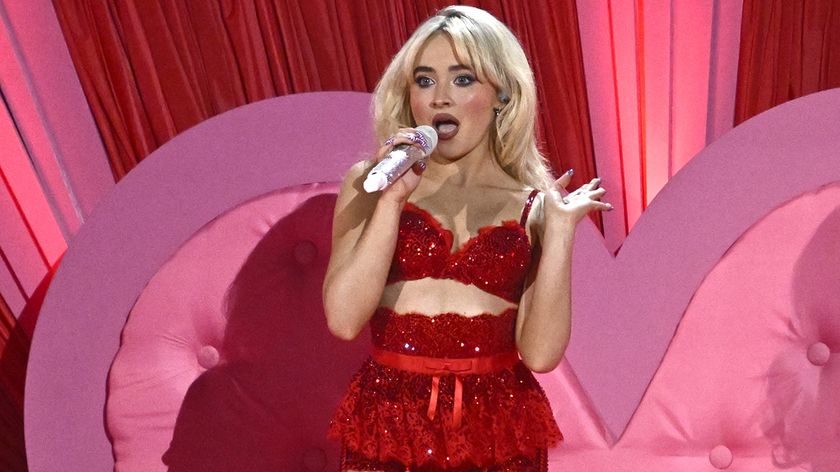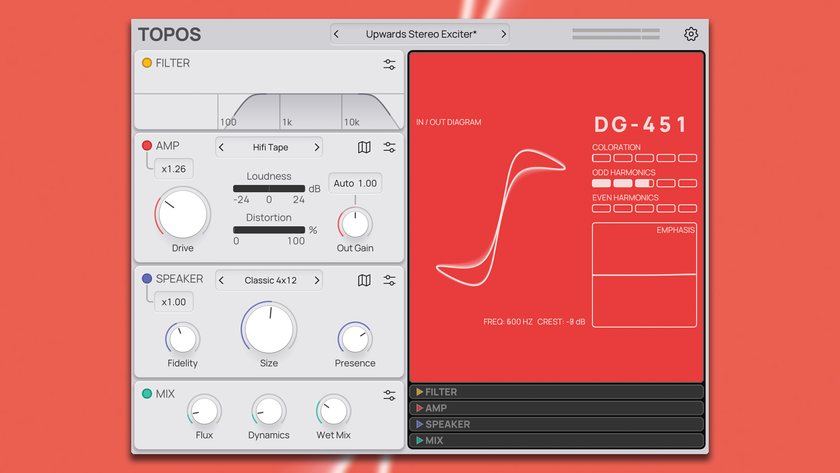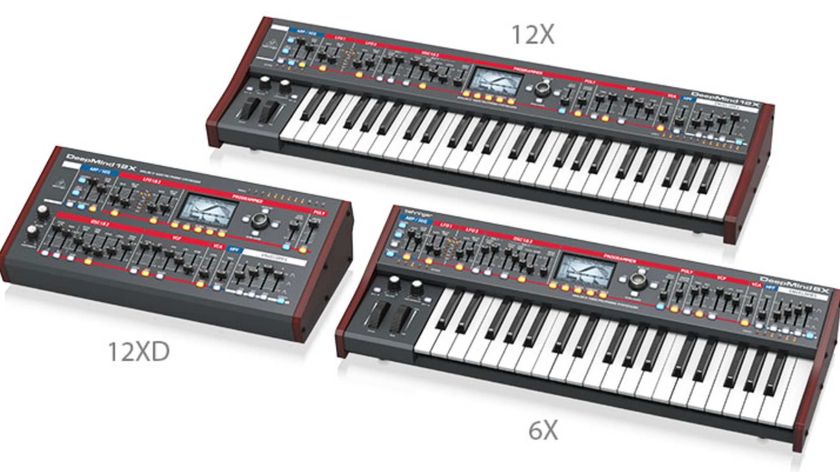Watch Steve Angello's 2007 In The Studio video from Future Music
A classic FM video filmed in Steve's Stockholm studio in 2007
The video above is a classic FM 'In The Studio' from 2007. Back before the Swedish House Mafia were global superstars we bumped into Steve Angello in a Stockholm nightclub. He invited us to see his studio the next day.
It turned out to be an unplanned, impromptu track making session where we got an insight into how and where Steve Angello produces. Below is an excerpt from the interview with Steve from that same session.
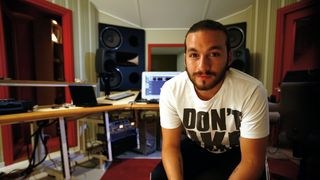
Slap bang in the middle of Stockholm, on the top floor of a building above a nightclub, lies what's commonly known as the best-sounding room in the city. Well, at least that's what the latest owner, Steve Angello, tells us. With enormous custom-built speakers that have been tuned to the room, the four massive 15-inch speakers pin you to the wall with every consecutive clockwise turn of the Mackie Big Knob.
"If I want to get a sound I just make it, instead of looking for a preset."
It's a beautiful working environment but is painfully sparse for us FM gear freaks! Replacing the spot that used to hold a medium-sized mixing console are two massive Apple screens and an Edirol controller keyboard. Where rack gear was mounted now hangs looms of unpatched cables - it's a simple set-up from which Angello still produces a monstrous sound. After poking around the equally sparse live room and a delightfully Disco-style toilet (no, really) we get started with our chat and a bit of studio work on Angello's latest track.
At 23 years old, you have already had significant success. How did you start DJing and producing music?
"Well I've been DJing since I was about 12. My family have been involved in nightclubs in Athens because that's where my Dad's from and I just hung around with them and got interested in the nightlife. I got a set of decks when I was 12 and just started playing at school parties. By the time I was 16 I was DJing at the Eurovision Song Contest, doing the filler parts between the acts. Sebastian [Ingrosso] and I knew each other from when we were about six years old and his Dad was interested in the record industry.
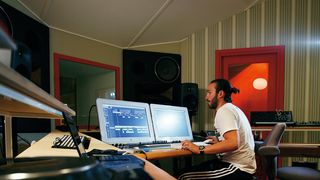
"One day we went into the studio and did something and realised that's what we wanted to do, so we just worked our asses off. Daft Punk has always been a huge influence so for us to move to the whole Electronic scene was natural. And it went pretty well, so around 2002 I opened my label and it's just been going onwards and upwards ever since."
"I don't want a sound that's created for me. If you know your tools, then you're the king of the studio."
When did you meet Axwell?
"We met around 1999/2000 - through StoneBridge actually. There's quite a tight-knit scene here. Everyone knows everyone and there's no competition. There's something special here."
Get the MusicRadar Newsletter
Want all the hottest music and gear news, reviews, deals, features and more, direct to your inbox? Sign up here.
What's your ultimate goal?
"I'm not into the mainstream thing. I just want to do my own thing, become one of the biggest DJs in the world and keep doing what I'm doing. I don't want to become a Pop icon; I'd rather be a guy who's still around in 15 years than be gone after two. Prydz and Axwell are two of the best producers in the world, so even though they have mainstream success, they'll still be around in years."
What were the biggest leaps in technology for you?
"I've got a PC at home and started to work on it for a while. I was with Logic 4.7 until only a year agowhen I got a Mac - I couldn't move on for ages! Logic is something I need in my life, I can't work without it. I've tried other DAWs but it just doesn't work. Just being able to run everything on a laptop is amazing. If you think about it, NASA used to run on about 4MB of speed and now I have a computer on my lap faster than the one that went to the moon.
"I used to have analogue gear and loads of big old synthesizers everywhere but they stand around and break and gather dust, and we're not very good at taking care of them either. So the laptop is amazing because I can do everything I could do in the studio on it."
What are you are your top plug-ins?
"I just use Logic's own. I want to make it as simple as possible. I want a basic sound that I can create myself. I don't want a sound that's created for me. If you know your tools, then you're the king of the studio. I'm completely self-taught and I know what I need to know to get around."
What's your advice to make it big?
"Just keep doing what you love and working on what you believe in. Make the trends, don't follow them. Work your ass off and sit in the studio 24/7. And when you're happy with a track, send it everywhere. Most DJs own their own labels so it might be an idea to send it to them first."
How do you think your production style has developed over the years, and why do you think these changes have occurred?
"I think we've got a lot more into advanced productions - not that you can always hear it but just the way of doing stuff. For instance, if I want to get a sound I just make it, instead of looking for a preset. I think the main reason for this advancing is simply the amount of the time we spend in studios. You get bored of doing the same thing over again and I think people always look for new challenges."
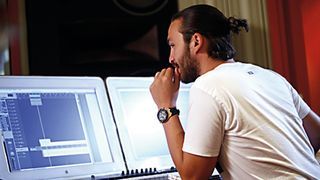
What's been the highlight of your career so far?
"Everything to be honest! Well we've done so many things: big records, big remixes... We've remixed Justin Timberlake and Moby... Everything is a highlight. We just try and move on and create more highlights. I'm still enjoying every second and I'm also still learning from day to day. The gigs, the remixes, the productions and the travelling: it's just one big happy smile in my face every day."
What do you think the best method is for sustaining long-term popularity in the Dance Music Industry?
"Hard work, and lots of it! Just work hard and always make sure you put quality in front of quantity. It's really important - a lot of producers put too much time in just doing tunes and releasing them. I promise you not even half of the producers love every single track they make and release, and that's a shame because you can hear it. Just follow your heart and go for what you love."



“My love letter to a vanished era that shaped not just my career but my identity”: Mark Ronson’s new memoir lifts the lid on his DJing career in '90s New York
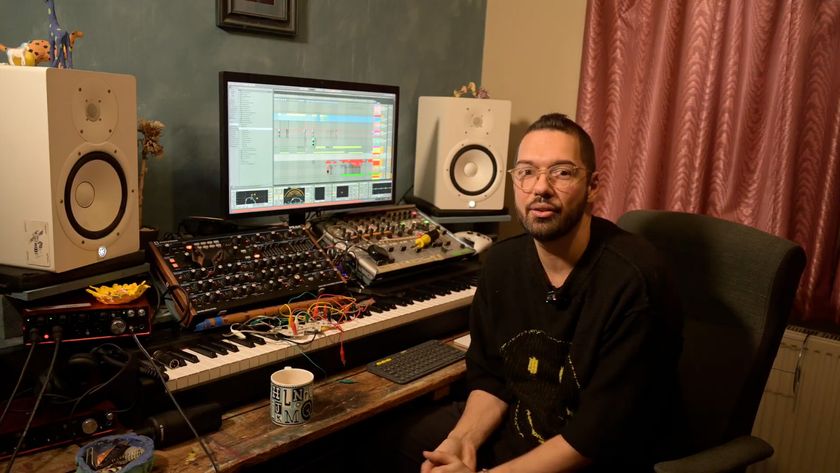
“I'm always starting up sessions and not finishing them, but I don't see that as unproductive”: Virtuosic UK producer Djrum talks creativity and making Frekm Pt.2

